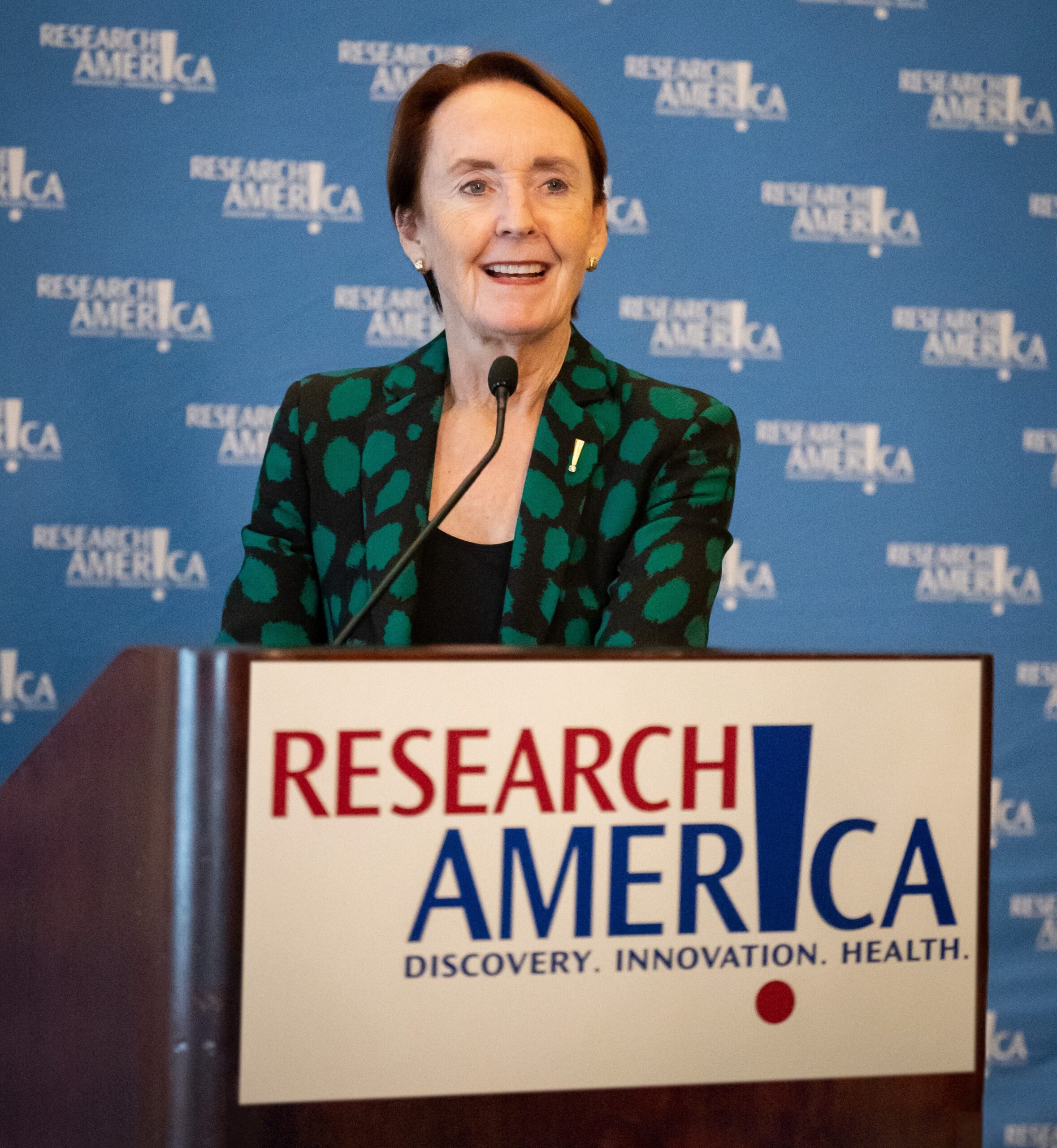New Year, New Opportunities

Greetings in the new year. We are taking time to remember President Jimmy Carter’s legacy in public health – both here and globally. Through the Carter Center, the 39th president worked tirelessly to address neglected tropical diseases, such as Guinea worm disease, and advocated for advancements in mental health treatment. Former HHS Secretary Louis Sullivan noted about his fellow Georgian: “As Governor of Georgia [Carter] supported the development of Morehouse School of Medicine, the first school of medicine organized in the 20th century to train African American and other minority health professionals.” You can read more about Carter’s many contributions here.
Looking Back and Moving Forward: This past year, we worked together to cultivate congressional champions, engage federal officials, and raise public awareness about the contributions of science and innovation to our nation and the global community, and the need to speed the pace via stronger investment. With you, we will continue to advocate for science and technology, including faster medical and public health progress to deliver better health for all.
In 2024, we worked with you to:
- Address controversial and consequential NIH reforms, facilitate interactions with key congressional staff, and set the stage for productive engagement with both sides of the aisle as interest in NIH reform continues.
- Facilitate discussions between alliance members and the congressional staff working on “Cures 2.1,” the third generation of bipartisan legislation (the 21st Century Cures Act) focused on strengthening the discovery, development, and delivery pipeline.
- Foster international research partnerships and pandemic preparedness funding in support of U.S. and global health, security, and prosperity.
- Co-lead a coalition to build trust in health and science.
- Build on the momentum generated from STAC’s State of Science in America report to develop a Vision for American Science and Technology (VAST). Much more to come on this important topic in February!
- And much more!
Take a look at our collected 2024 accomplishments. With you, we will build on this groundwork in 2025. I think there are many reasons to be optimistic about science and advocacy for science in 2025. Science Editor-in-Chief Holden Thorp nicely captures that sense in his Jan. 1 commentary.
On the Hill: The 119th Congress will be sworn in tomorrow, followed by a vote that will determine whether Rep. Mike Johnson remains Speaker of the House. (Lots of good background on how the House chooses leaders, the various responsibilities of those leaders, and the current leadership roster.) President-elect Trump will be inaugurated on Jan. 20, after which he can officially nominate the slate of cabinet and sub-cabinet level nominees he announced during the lame-duck session of Congress. Here are the expected Department of Health and Human Services (HHS) nominees to date:
- HHS Secretary: Robert F. Kennedy Jr.
- HHS Deputy Secretary: Jim O’Neill
- NIH: Jay Bhattacharya, MD, PhD
- CDC: Dave Weldon, MD
- FDA: Marty Makary, MD, MPH
- Surgeon General: Janette Nesheiwat, MD
- Centers for Medicare & Medicaid Services (CMS): Mehmet Oz, MD
- Trump Administration HHS Transition Advisor: Brian Blase, PhD
In addition, Trump has indicated he will nominate Michael Kratsios as the director of the White House Office of Science and Technology (OSTP).
Beyond the Presidential appointee confirmation process, the Trump Administration and Congress will be working against the clock in several arenas, such as addressing the debt limit (Treasury Secretary Yellen anticipates that our nation will reach the current limit this month, necessitating the use of “extraordinary measures” and reserves), and completing the FY25 appropriations process before the current continuing resolution (CR) expires on March 14, while also beginning the FY26 appropriations process. Advocates need to ensure Congress doesn’t dismiss other critically important unfinished business, including reauthorizing PEPFAR before its March 25 expiration and addressing the failure to reauthorize the Pandemic and All-Hazards Preparedness Act and the Rare Pediatric Disease Priority Review Voucher Program.
Don’t Sit on the Sidelines: The President-elect’s expected nominees for HHS roles (see above) have stated an interest in bringing about changes to increase efficiency, accountability, and transparency – something many in the research and innovation ecosystem agree is needed. What actions should the patient and research community push for to make NIH, FDA, CDC, AHRQ, and other research agencies stronger and more effective? In a recent Boston Globe article, Research!America’s Ellie Dehoney cited the possibility of reducing the administrative burden required by federal research agencies that – at last estimate – absorbs 44% of a researcher’s time.
Bring your ideas to our next alliance member-only strategy session, taking place via Zoom on Jan. 23 at noon. If you are with a Research!America alliance member organization, email Jacqueline Lagoy for the link. If your organization is interested in learning more about alliance membership, email Kristen Furlong.
Empowering Patients: Please join us on Jan. 7 at 11 a.m. ET for a fireside chat with award-winning medical journalist Elizabeth Cohen — our 2025 Isadore Rosenfeld Award for Impact on Public Opinion recipient. Through her reporting, she has helped Americans make sense of health issues and research findings. Hear her powerful stories of patients navigating the medical system and learn how to advocate for yourself in health care. This discussion will be moderated by Eric Strauss of ABC News. Join us on Zoom by registering here.




